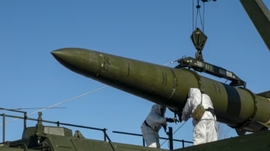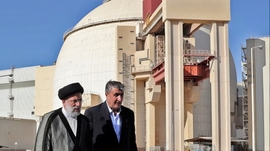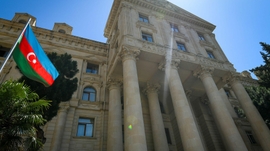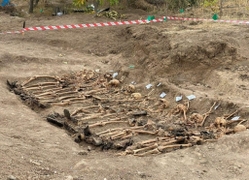Talks between the foreign ministers of Azerbaijan and Armenia in Brussels on Tuesday, when Azerbaijan’s Foreign Minister Elmar Mammadyarov called for a complete withdrawal of Armenian forces from occupied Azerbaijani lands while meeting his Armenian counterpart Edward Nalbandyan, did not yield any tangible result in settling the decades-old dispute over Azerbaijan’s region of Nagorno-Karabakh.
“Minister Mammadyarov reiterated that in order to reduce tensions and ensure security in the region, the Armenian armed forces should be withdrawn from the occupied territories of Azerbaijan,” Azerbaijani Foreign Ministry Spokesman Hikmat Hajiyev said. “Azerbaijan is in favor of continuing substantive negotiations on the settlement of the Nagorno-Karabakh conflict.”
The ministerial meeting in Brussels came exactly one week after Armenian mortar fire rained down on Alkhanli village in Azerbaijan’s Fuzuli district, killing a two year-old girl and her grandmother, and severely wounding a third.
Mammadyarov and Nalbandyan had gone to Brussels with the aim of achieving a consolidated agreement at easing tensions along the line of contact between Armenian-backed and Azerbaijani armed forces. But efforts floundered, as Armenian-backed troops violated a ceasefire agreement officially in place exactly 141 times, between Tuesday evening and Wednesday morning, according to the Defense Ministry of Azerbaijan.
The last time the two ministers met was in Moscow on April 28. There, in meetings brokered by Russia, they underlined the importance of implementing agreements that were reached during the Vienna and Saint Petersburg meetings between the presidents of Azerbaijan and Armenian in May and June 2016, respectively, which sought to maintain a stable situation in Nagorno-Karabakh and create grounds necessary for peacefully resolving the overall conflict.
The dispute between the two South Caucasus neighbors over Nagorno-Karabakh erupted during the dying days of the Soviet Union. In 1988, after Armenian power-brokers laid claim to the region due to its heavy ethnic Armenian population, tensions escalated between the two sides. By 1992, after the USSR was dissolved and Armenia and Azerbaijan became independent, a full-scale war erupted, which eventually resulted in Armenia occupying Nagorno-Karabakh and seven surrounding districts. By 1994, after Russia brokered a ceasefire agreement, more than 20,000 Azerbaijanis had been killed and over a million people displaced. In addition, 4,000 citizens were taken captive, hostage, or went missing.
Despite mediation overseen by the Organization for Security and Cooperation in Europe (OSCE) and conducted through what has been dubbed the Minsk Group, the Nagorno-Karabakh conflict is far from over. Four UN Security Council Resolutions calling for Armenia to unconditionally withdraw its forces from Azerbaijan, all passed between April and November 1993, go unfulfilled, which has pushed any effort to resolve the conflict into a deadlock.
The three Minsk Group Co-Chairs from the United States, Russia, and France were also in attendance at Tuesday’s meeting in Brussels, and proposed holding another ministerial-level meeting in New York in September on the sidelines of the 72nd session of the UN General Assembly. The tripartite group plans to visit Armenia and Azerbaijan this Fall.
The role of the Minsk Group has been debated, and its activities were most recently criticized during an OSCE Parliamentary Assembly meeting held in Minsk from July 5-9.
“At the meeting, regret was expressed in connection with the inconclusive activities of the OSCE Minsk Group. Opinions were voiced about the fact that Armenia should return to the negotiating table and achieve a concrete result in the shortest possible time,” said Azay Guliyev, Vice-President of the OSCE’s Parliamentary Assembly, on Wednesday.


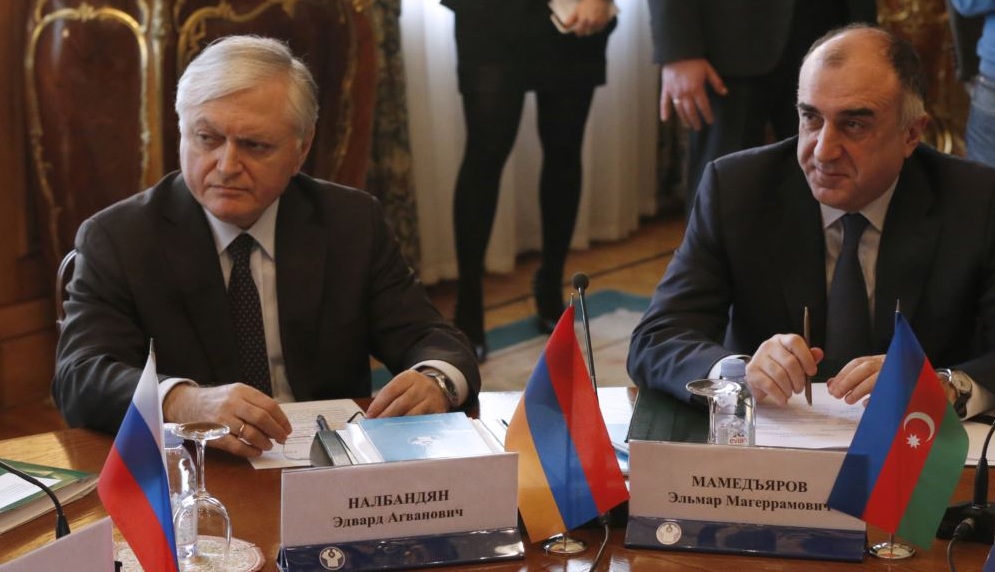




 The Azerbaijani government has rejected the recent claims made by French Interior Minister Gérard Darmanin, who accused Baku of fostering separatis...
The Azerbaijani government has rejected the recent claims made by French Interior Minister Gérard Darmanin, who accused Baku of fostering separatis...
 The Chief of the Atomic Energy Organisation of Iran (AEOI) said that the country has allowed more than 130 inspectors of the International Atomic E...
The Chief of the Atomic Energy Organisation of Iran (AEOI) said that the country has allowed more than 130 inspectors of the International Atomic E...
 Ulviyya Fataliyeva, a female Azerbaijani chess grandmaster, was crowned this week at the European Women’s Chess Championship (EWCC) in Rhodes, Gree...
Ulviyya Fataliyeva, a female Azerbaijani chess grandmaster, was crowned this week at the European Women’s Chess Championship (EWCC) in Rhodes, Gree...
 President Ilham Aliyev praised Azerbaijan’s cultural diversity as a key factor in fostering peace, stability, and unity within the country, where a...
President Ilham Aliyev praised Azerbaijan’s cultural diversity as a key factor in fostering peace, stability, and unity within the country, where a...
